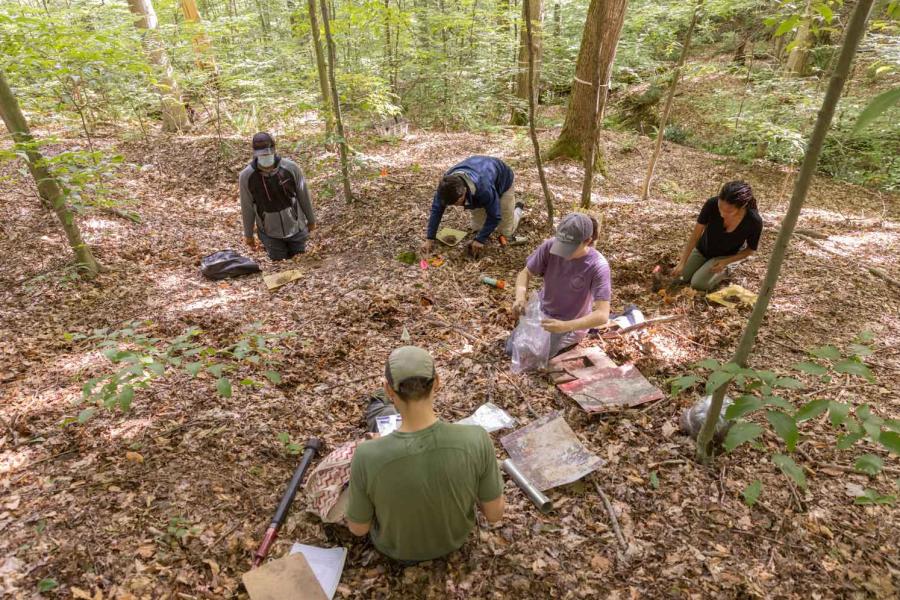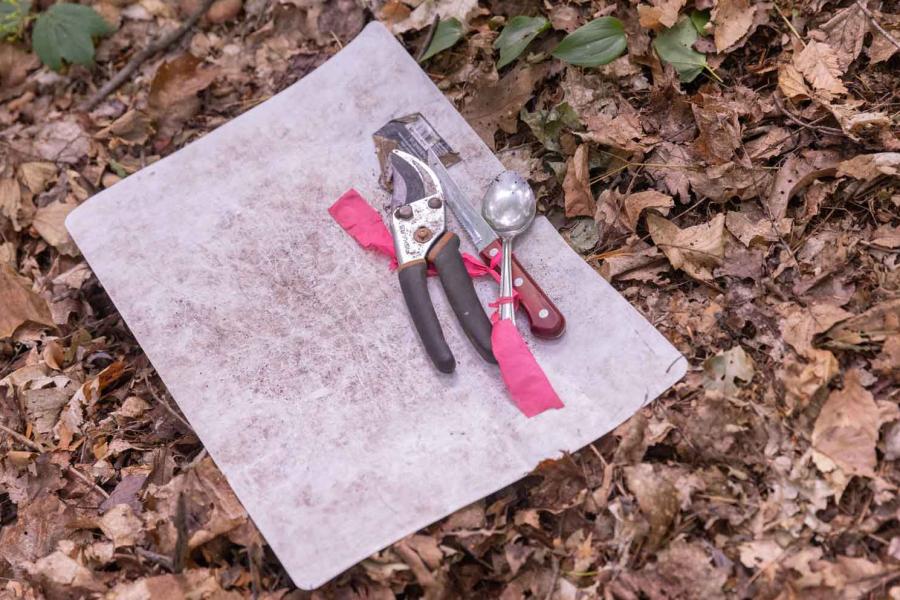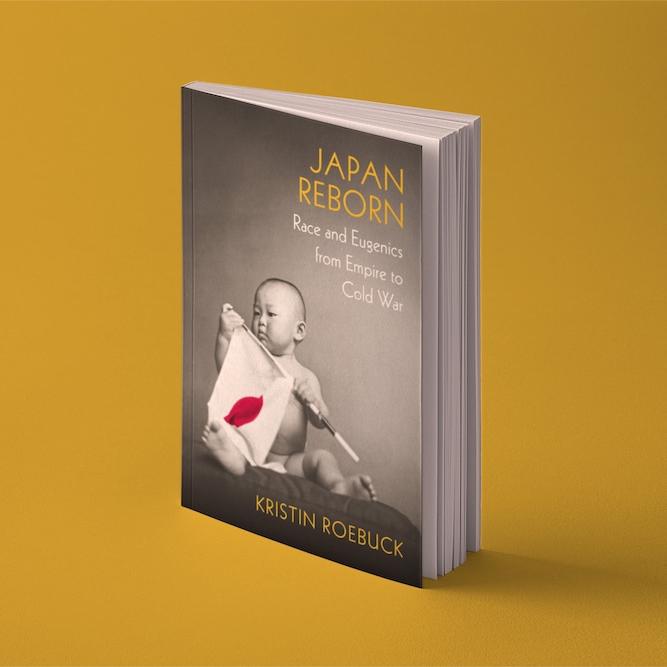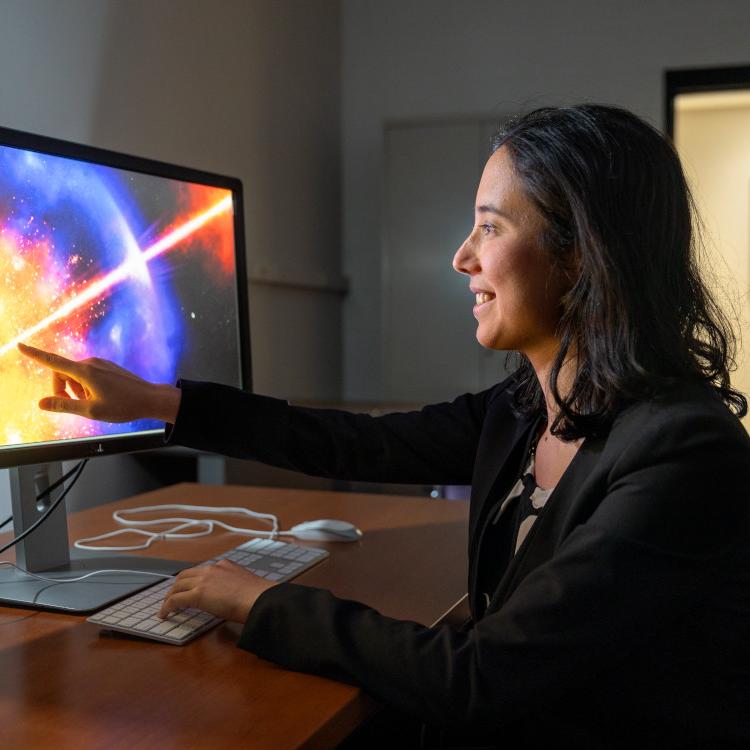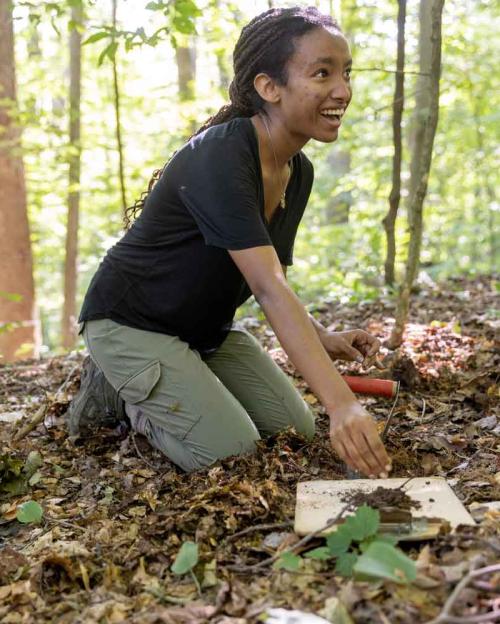“Tuck your pants into your socks – the ticks can be really bad out here,” graduate student Dave Frey tells the group of four students as they embark from their cars.
That’s one of the directions the students are used to hearing this summer as they head into the forests surrounding Ithaca to collect soil samples that will be used in research assessing soil carbon storage and loss. They also are treated to bird songs, visits from forest critters and the peace and quiet of the woods.
Eden Kebede’25, Sofia Mendez Bickham ’23, Luke Whoriskey ’24 and Tony Kinchen ’24, are spending the summer working with Christine Goodale, the Frank H.T. Rhodes Professor of Environmental Science in the College of Arts & Sciences, and her graduate students and staff on field work and analysis on soil coming from a long-term forest fertilization experiment in several locations around Ithaca.
The experiment is supported by a U.S. Department of Agriculture grant to Goodale and Professors Taryn Bauerle and Carmen Enid Martinez from Cornell’s School of Integrative Plant Science.
Goodale, a forest ecosystem ecologist, studies how forests cycle and store carbon and nutrients in trees, microbes, and soil, and how these processes respond to changes in climate, air pollution and disturbances.
Kebede is one of the inaugural Nexus Scholar in the College of Arts & Sciences, which means that she is paid for her summer research and takes part in various activities, professional development workshops and career exploration events during the summer. The program is made possible through a number of alumni gifts, including from Elaine Wong ’97 and Fritz Demopoulos.
“As faculty, we benefit tremendously from the enthusiasm and energy that Cornell undergraduates bring to our research programs,” Goodale said. “The new Nexus program provides a great chance for us to work with undergraduates who really want to get their hands dirty with a range of research opportunities – in our case, that often means literally.”
For students working with Goodale summer, some of their days involve the retrieval of soil samples from the woods, which are gathered from established forest plots and include several different layers of soils. On other days, the undergraduates work with Frey and lab manager Matthew Hecking to analyze each sample. Each sample is put through a sieve, then students measure the pH level, the microbial biomass, the soil moisture level and its organic carbon and nitrogen content.
“We’re looking at how nitrogen deposition and ecosystem acidification impacts these carbon stocks and humans continue to influence those two factors,” Frey said.
For her Nexus research project, Kebede measured how these experimental manipulations of soil pH and nitrogen availability have altered microbial decomposition of soil organic matter. In the lab, she and Frey measured the amount and natural isotopic composition of the CO2 produced by the soil samples. Together, these measurements can illuminate how nutrients and acidity affect the rate and type of carbon released by microbes from soils during decomposition.
This is the first research experience for Kebede, who is a premed student planning to major in biology and society in the College of Arts & Sciences.
“The major lets me explore ethics, sociology and other classes, while also having biology as a focus,” Kebede said. “This summer project seemed the most interesting to me. I wanted to explore what was interesting to me and I love being outside.”
Mendez Bickham worked with Goodale’s lab last summer, as well, collecting soil samples in the Adirondack Mountains, where work published this month by former Ph.D. student Bhavya Sridhar showed that experimentally raising forest soil pH can enhance surface soil carbon storage by changing the soil microbial community composition.
“This lab gives me an idea about the kind of work I could be doing,” she said. “My classes haven’t included any work in the field yet, so this is a good experience.”
